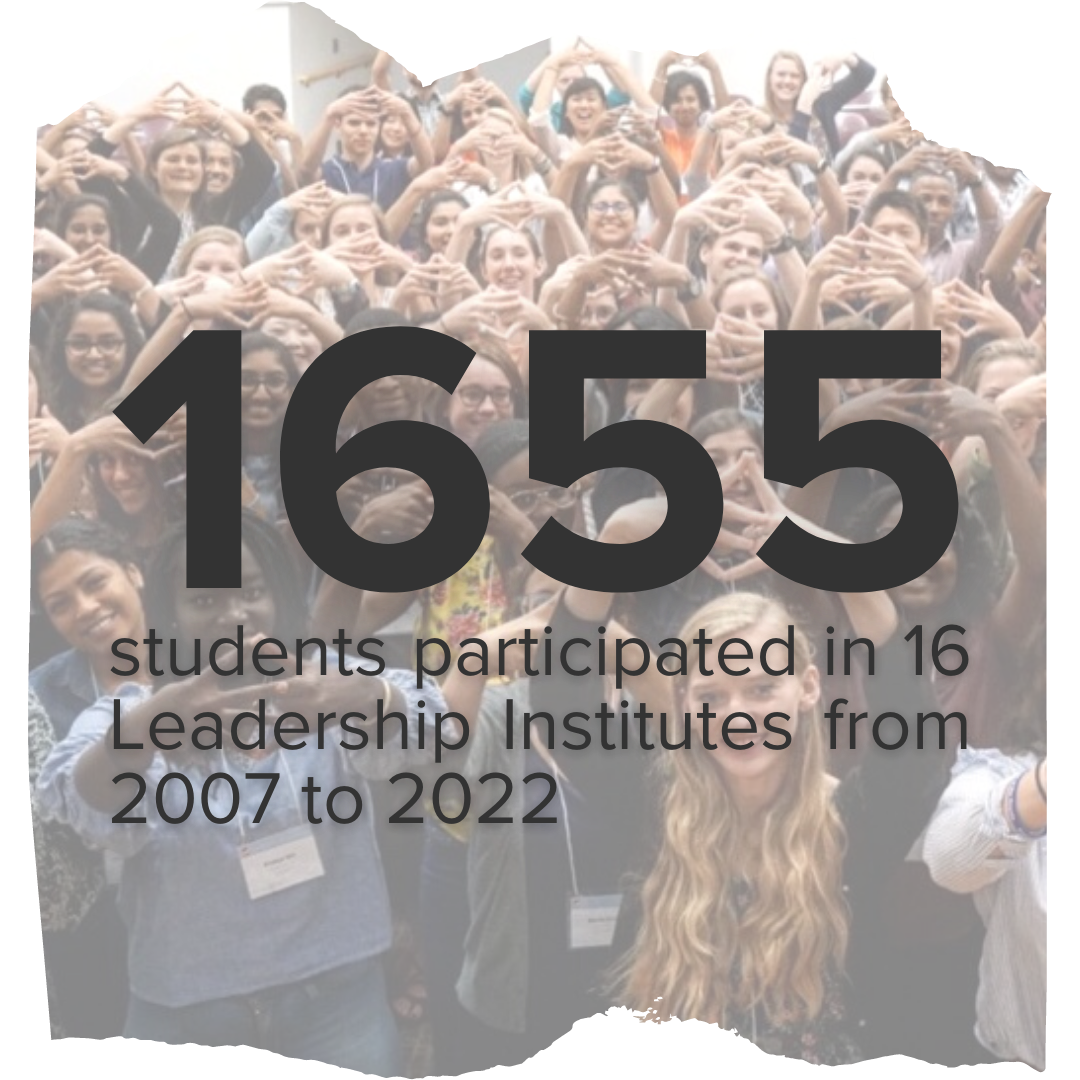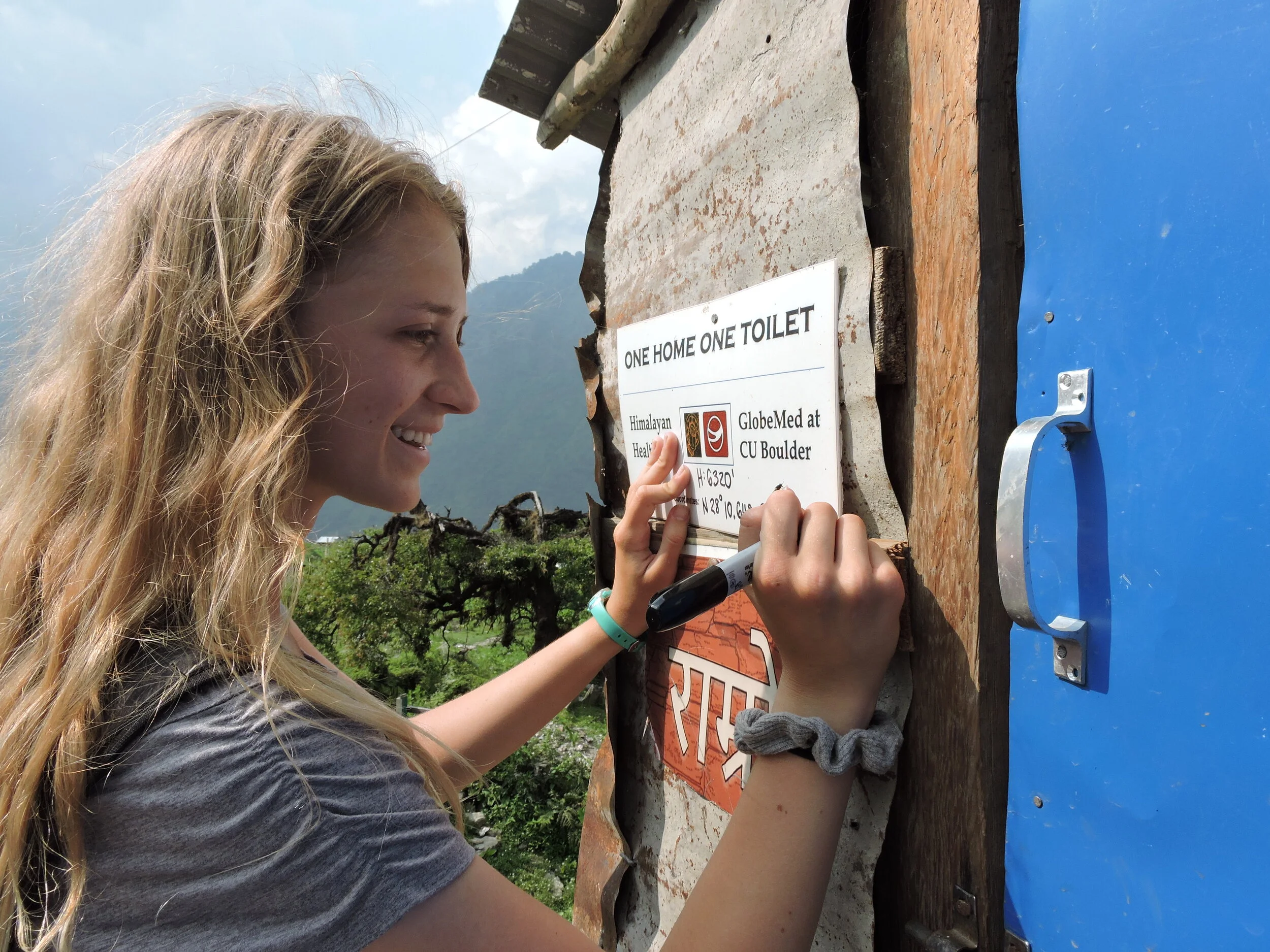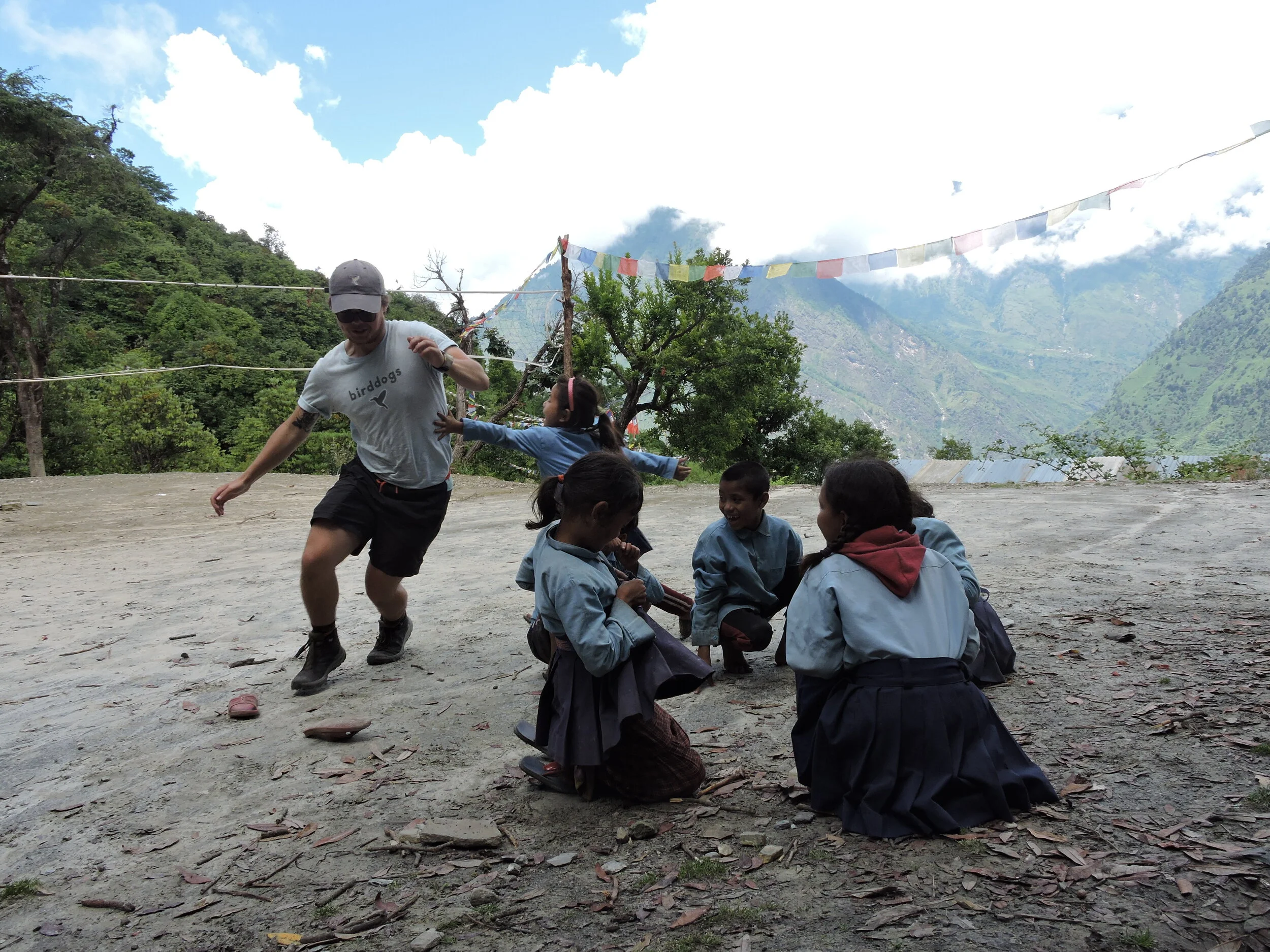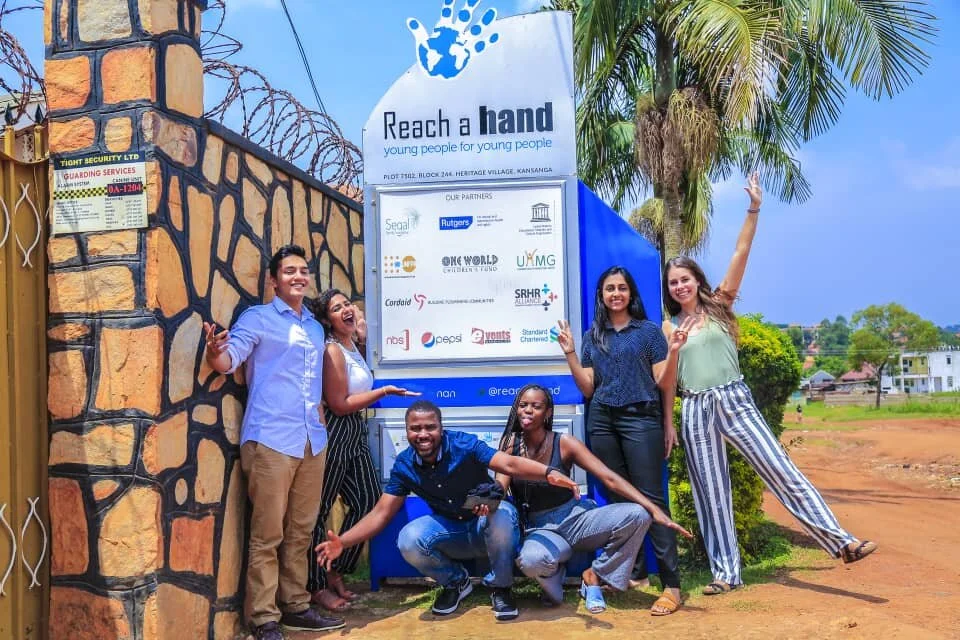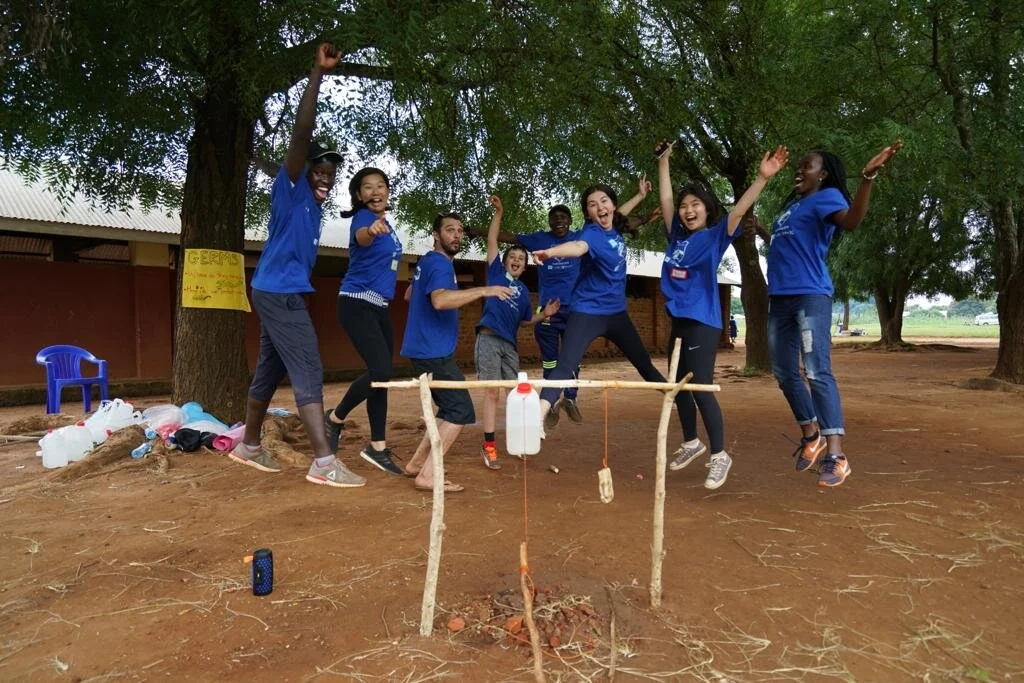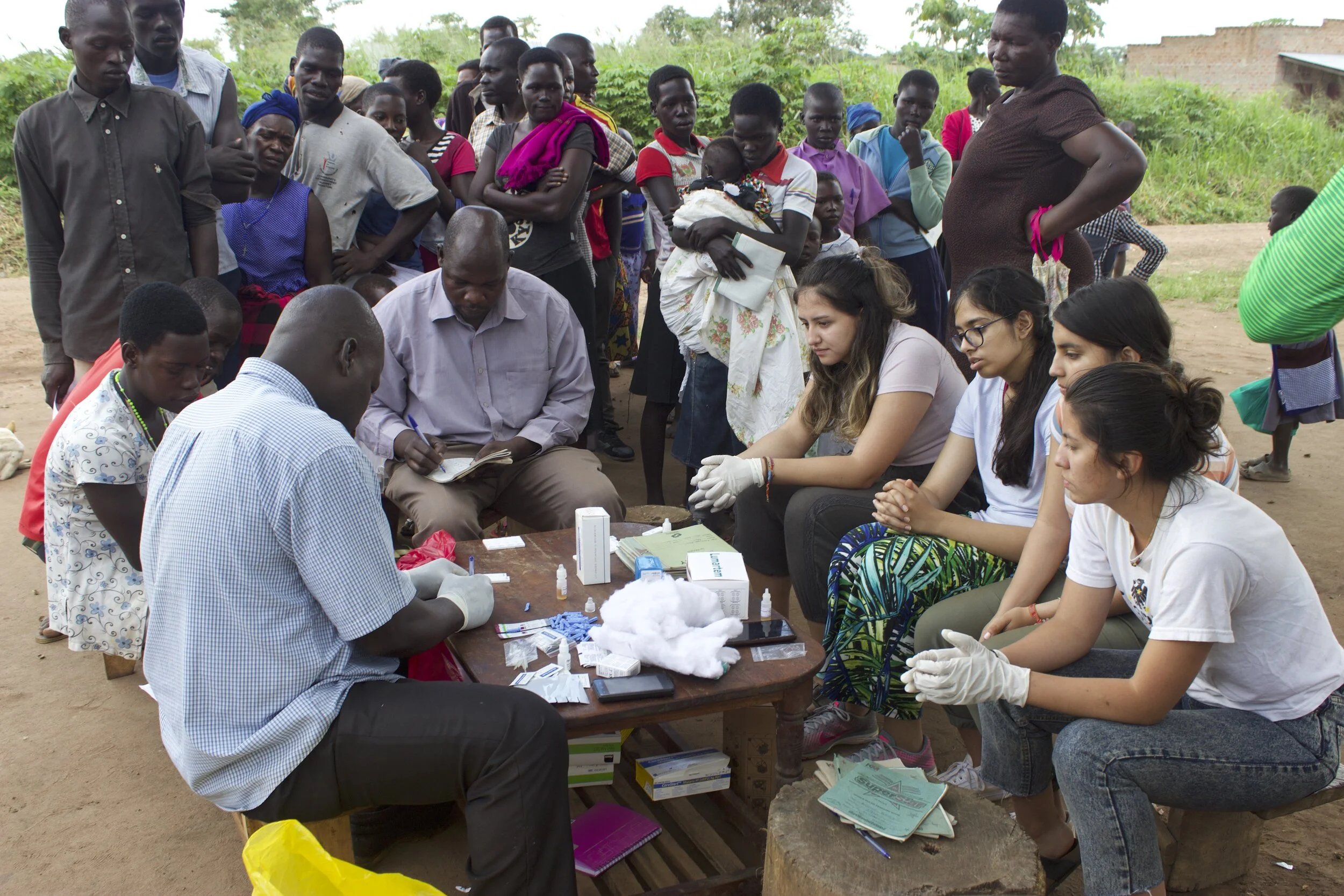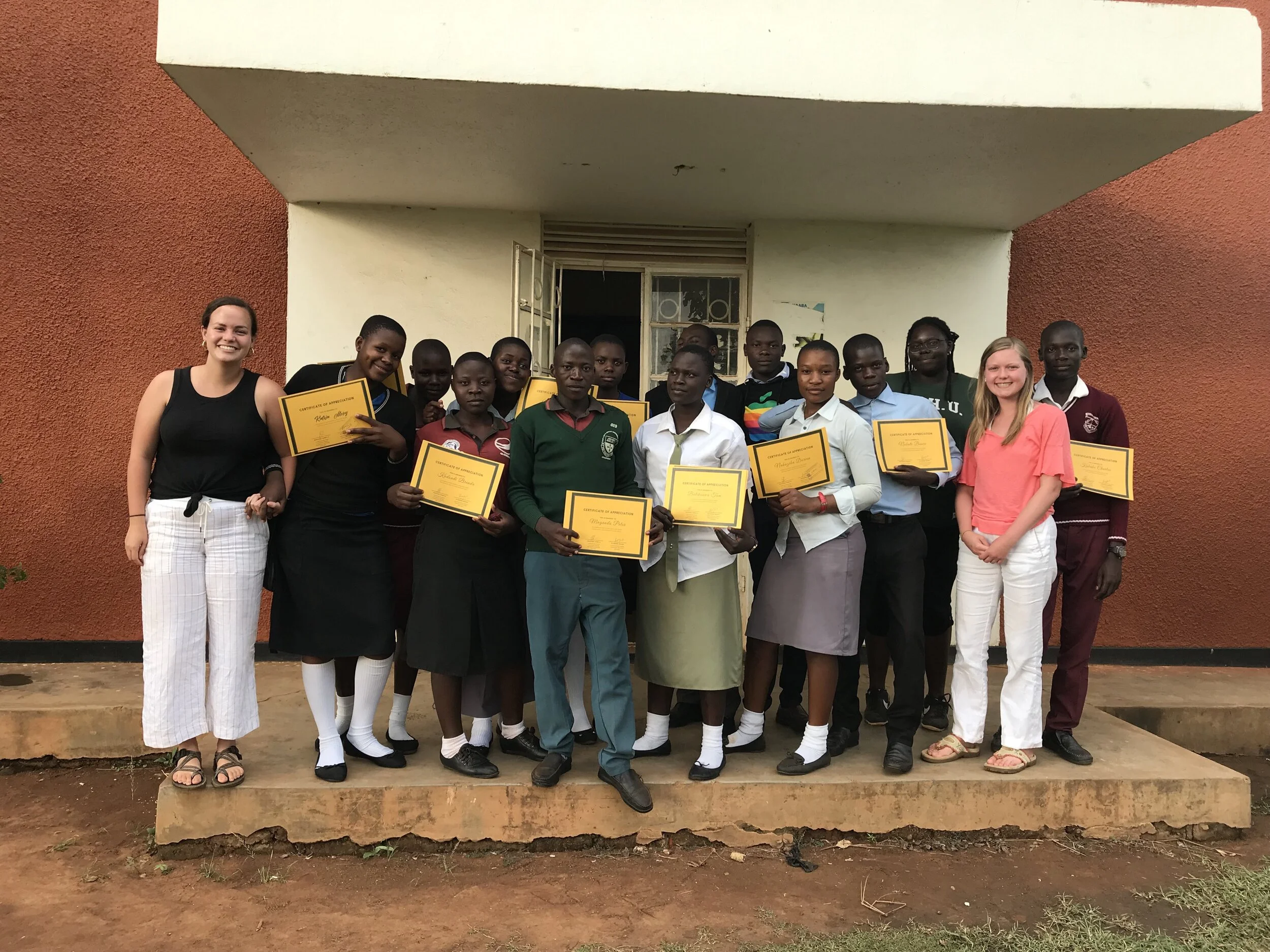Student Programming
From 2006 to 2023, undergraduate students became a part of GlobeMed either by founding or joining a chapter on their university campus. GlobeMed’s Global Headquarters acted as a backbone organization for all of the university chapters, providing a grounding in anti-oppression, ongoing global health equity programming, and support for partnerships. GlobeMed Global Headquarters supported the ongoing leadership development of students, with a focus on the 7 Leadership Practices. We developed the 7 Leadership Practices, with influence from our grassroots partners, based on what we believe are the necessary skills for truly transformative leadership.
Throughout the year, students participated in a variety of activities that provided opportunities to use and develop the Leadership Practices. Student activities fell into one of three categories.
Anti-Oppressive Partnership
GlobeMed paired university chapters with grassroots organizations around the world that are already creating change in their local communities. These one-to-one partnerships were grounded in trust, relationships, and mutual-learning. Partners served as community experts and teachers and students sought to shift resources and transform oppressive power structures within global health.
Peer Learning & Leading
GlobeMed student leaders were trained to foster transformative learning experiences and become advocates for global health equity. During regular meetings and events, students facilitated discussions that uplifted the diverse skills, perspectives, and lived experiences of the participants. Chapters created room to dig deep and challenge perspectives while also serving as spaces of inclusion and belonging on campus.
Community & Movement
GlobeMed chapters did not function alone. Rather, they were a part of a larger movement for global health equity. The GlobeMed network of students, partners, and alumni worked collaboratively with each other and other groups on our campuses and in our communities. Fueled by their interconnectedness, members brought energy, heart, and a fierce commitment to justice to each space they entered.
Leadership Institute
Starting in 2007, GlobeMed began each academic year with Leadership Institute, a multi-day conference to prepare students with the knowledge and resources to run high-caliber student organizations.
GlobeMed’s experiential learning opportunities picked up where the classroom leaves off, transforming students from passionate, curious youth into visionary leaders and change-makers. Leadership Institute was where transformation began as students united to learn about themselves, each other, and the potential they have as a network of global health equity leaders.
In addition to learning from one another, student leaders who attended Leadership Institute had the opportunity to hear from a wide range of professionals working in social change. Leadership Institutes have been strengthened through the participation of individuals such as Stephanie Kimou from Population Works Africa, Tom Kawalec from Accenture, Bella Bahhs from #LetUsBreathe Collective, Ed Cardoza from Still Harbor, Donna Barry from Partners in Health, and Adam Goodman from Northwestern’s Center for Leadership, among others.
“Leadership Institute opened up my eyes to social justice issues that are happening around the world and even in the United States. I learned that in order to be an effective leader for social justice and anti-oppression, I must be open minded, well informed and speak up when I see wrong doings.”
Student-Led Programming
globalhealthU (ghU)
GlobeMed chapters would meet regularly and discuss their partnership, ways they could engage in the fight for health equity in their backyard, and to learn together about global health issues and topics. The sessions where they would dig into global health lessons are what we call globalhealthU, or ghUs.
These sessions were planned and facilitated by the Director of ghUs, to create opportunities for chapter members to learn from and lead each other on global health topics that are important to their partnership, their local context, or as a global health leader.
“As a leader of ghU, the most meaningful impact that GlobeMed has had on me is definitely educating and leading discussions about public health issues, including health disparities and racism in the healthcare field.”
Hilltops
While GlobeMed hosted the regular Summit conference for any GlobeMed student to attend, as well as anyone who is a part of the global health equity movement, students were encouraged to host their own conferences for neighboring chapters to participate in. These smaller conferences were called Hilltops and were collaborations between neighboring GlobeMed chapters.
Hilltops provided an opportunity for students to not only practice peer learning and leading, but to proactively build and nurture the community and movement of young global health equity leaders.
Grassroots On-site/Online Work (GROW) Internship
GlobeMed was built around experiential learning, and who better to directly learn from than grassroots, community leaders? Small teams of three to five students would visit their partner organization for four to eight weeks as a part of the Grassroots On-site Work (GROW) experience. In 2020, we adjusted the program to include a virtual internship, the Grassroots Online Work experience. Partners would identify projects and areas that would benefit from the support of visiting students and work with the students to create a hands-on learning experience.
The mutual learning that results strengthens the capacity of both the student learners and community leaders. Back on campus, students share their learning with their chapters, equipping them with the firsthand knowledge to be improved advocates for the following year.
Creating Opportunities
Creating Connections
Ethnicities of interns from 2012-2018
“As a virtual GROW intern, it was eye-opening to see how each project is rooted in the needs of the community we’re serving. This experience has made me realize the importance of grassroots work especially now at a time when it is most needed.”
Summit
The GlobeMed Summit hosted students, young professionals, community leaders, and other key individuals from around the world to share diverse perspectives and innovative approaches to advancing health equity. The multi-day program provided delegates with a critical understanding of the intersection between global health and social justice, explored ethical practices in global engagement, and provided a space for like-minded individuals to network and form relationships. Through expert panels, interactive workshops, and networking opportunities, the GlobeMed Summit advanced learning and collaboration and inspires delegates to lead change in their community and beyond.
Notable speakers have included Dr. Tedros Adhanom Ghebreyesus, Director General of the World Health Organization; Leymah Gbowee, 2011 Nobel Peace Prize Laureate; Dr. Paul Farmer, co-founder of Partners in Health; Dr. Raj Panjabi, Founder of Last Mile Health; Pamela Angwech, executive director of Gulu Women’s Economic Development & Globalisation; Dr. Roopa Dhatt, executive director of Women in Global Health; and George Aye, co-founder of Greater Good Studio, among many others.
“[The] GlobeMed Submit has been one of the most wonderful [events] I have ever attended. The approach and encouragement a student gets to work in the field of global health is the best part that motivated me to be part of it. I look forward to continuing my involvement in GlobeMed through my own country.”






